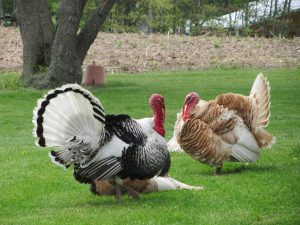Raised beds are a great way to garden, especially if you have limited space.
They’re also relatively easy to set up and take care of.
But a common question from gardeners is: can you fill a raised bed with just compost?
The answer is maybe—it depends on a few factors.
Yes, but there are a few things you need to keep in mind first. Make sure to choose high-quality compost and add some organic fertilizer before planting. You’ll also want to make sure that your raised bed has good drainage so that excess water can drain away from the roots of your plants.
Why use compost?
Compost is basically decomposed organic matter—think leaves, grass, and veggie scraps.
It’s a great way to add nutrients and improve drainage in your soil.
That’s why many gardeners choose to fill their raised beds at least partially with compost.
How much compost should you use?
The amount of compost you should use in your raised bed will depend on the size of your bed and the type of plants you’re growing.
For example, if you’re growing vegetables, you might need more compost than if you’re just growing flowers.
In general, we recommend using 3-4 inches of compost as a top layer in your raised bed.

Can you use too much compost?
Yes, you can definitely use too much compost in your raised bed.
If the majority of your soil is composed of compost, it could lead to subpar drainage and nutrient levels.
That’s why we recommend only using compost as a top layer in your raised bed.
Consider your plants and the type of compost
The type of compost you use will play a big role in whether or not you can fill your entire raised bed with it.
If you’re using manure-based compost, for example, you’ll need to be careful not to use too much, as it can burn your plants.
If you’re using leaf-based compost, on the other hand, you can use a little bit more without harming your plants.
The plants you’re hoping to grow will also play a role in how much compost you can use.
If you’re growing vegetables, for example, they’ll need more nitrogen than other types of plants, so you’ll need to use a manure-based compost that’s high in nitrogen.
If you’re growing flowers, on the other hand, they won’t need as much nitrogen, so you can get away with using a leaf-based compost.
The pros and cons of using compost in raised beds
There are a few things to consider before using compost as the sole fill for your raised bed.
Compost is great for adding nutrient-rich organic matter to the soil, but it doesn’t contain any structural ingredients like rocks or sand.
This means that it may not provide adequate drainage on its own, which can lead to waterlogged roots and plant problems.
Compost also tends to be lighter than other types of soil, so it may need to be replenished more often.
If you live in an area with heavy rains, you’ll also want to make sure that your raised bed has good drainage to avoid waterlogging.
Overall, using compost as the sole fill for your raised bed is possible, but there are a few things to keep in mind.
What you need to know about filling your raised bed with compost
If you decide to use compost as the sole fill for your raised bed, there are a few things you need to know.
First, it’s important to choose a high-quality compost. Look for compost that is dark brown or black in color and has a crumbly texture.
Avoid any compost that looks slimy or smells bad, as this could indicate that it isn’t fully broken down.
Next, you’ll want to make sure that your raised bed has good drainage.
If possible, add a layer of gravel or other drainage material to the bottom of the bed before adding the compost.
This will help ensure that excess water can drain away from the roots of your plants.
Finally, don’t forget to add some organic fertilizer to your compost before planting. This will help give your plants the nutrients they need to thrive.
Final Words
If you’re thinking about using compost in your raised bed, it’s important to do some research first.
Using too much compost can actually be detrimental to your plants.
We recommend only using 3-4 inches of compost as a top layer in your raised bed.
This will ensure that your plants have the nutrients they need without sacrificing drainage or causing other problems.
Read Next
Can you grow mustard seeds from the grocery store?










